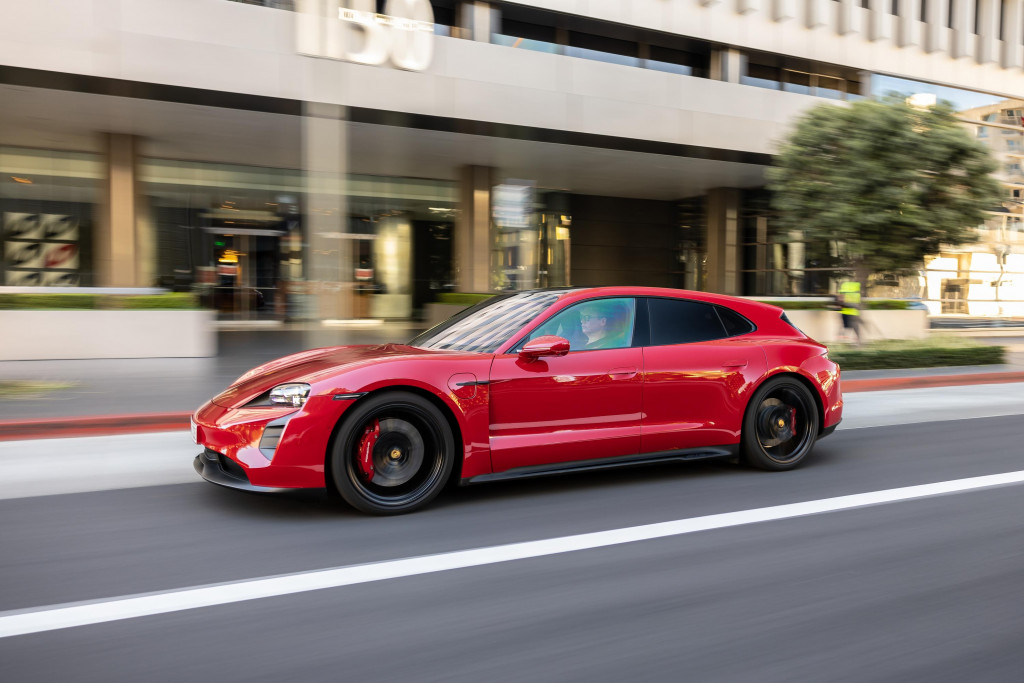Audi and Porsche are conducting a recall of 240-volt Level 2 AC charging cables for EVs and plug-in hybrids.
The recall covers 93,196 Audi vehicles in the U.S. from model years 2019 to 2024, including the E-Tron and E-Tron Sportback, Q4 E-Tron and Q4 E-Tron Sportback, and E-Tron GT EVs, as well as the Q5 plug-in hybrid. Porsche is recalling 41,345 U.S.-market vehicles for the same issue, including the all-electric Taycan and plug-in hybrid versions of the Cayenne and Panamera.
2021 Porsche Panamera Turbo S E-Hybrid Executive
The issue isn’t with the vehicles themselves, though, recall documents say. Audi and Porsche are aware of cases of “melting/overheating” when the cables supplied with the affected vehicles from delivery were plugged into NEMA 14-50 outlets. However, the automakers believe this is due to problems with those household outlets, or the wiring or circuit breakers they’re connected to.
To add an extra layer of safety, Audi and Porsche are replacing existing cables with ones that have temperature sensors to detect overheating. The new cables won’t be available until mid-2024, but when they arrive owners will get them free of charge from dealerships. In the meantime, owners are advised not to use the 240-volt home charging cable, and instead use only a Level 1 110-volt cable when charging at home.

2022 Porsche Taycan GTS Sport Turismo
It’s possible to get by on 110-volt home charging with some plug-in hybrids, but it’s a stretch for all-electric models. But some of the owners of the affected vehicles may use wallbox home chargers instead of plugging a charge cable directly into an outlet. A 2021 study suggested EV owners were more satisfied with wall chargers than charge cables, although another study out that year found that EV owners might not be aware of all home-charging options.
This isn’t the first instance of charging cables with the potential to overheat. Tesla had a similar issue that triggered a recall of accessory adapter cables in 2016. Tesla and some other automakers have even stopped including mobile charge cables with EVs.
